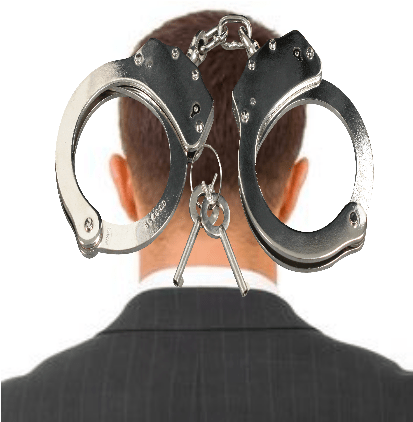
In situations of stress or tension, do you tell yourself things sometimes like: “This always happens to me?” Or: “Nobody wants to support me!”?
How about: “The others only think about themselves.”? Or: “Other people get things done so much easier than I do.”
Or even: “Life is hard, one needs to fight!” Or what about: “The good old days are long gone.” And: “Life is getting worse.”?
In the Muslim world at this time of the year we celebrate the month of Ramadan.
This is not only a time for physically fasting, but even more a time for reflection. All activities seem to be a little more dimmed, thoughtful and people are looking inwards more.
It is also a time to reflect beliefs. I am not only talking about religious beliefs or faiths but also those little and big beliefs that we have created since our childhood. Beliefs, that help(-ed) us to get along in a more complex growing world. Many of these beliefs we have already learned and internalized as young children. Even unconsciously we just copied them from our parents or caretakers who obtained them again often enough as children and gave them on, mostly without being further reflected. Some of them are life saving, like the fear of fire or of wild animals. Others are not. And many actually stand in our way when we deal with other people or situations.
Regardless whether one is fasting or not, there should be a time we take for ourselves regularly in order to reflect our beliefs.
How to identify a mind-cuffing belief?
In order to know what drives us internally it is always a good idea to listen to ourselves, especially once we are in a stressing situation. How do we talk to ourselves, about us, the situation or the other person? In these self-talks a big deal of our beliefs about our environment shows already.
And often enough we will catch our thoughts with phrases in the nature of those I have mentioned at the beginning of this article. In fact, a lot of our self-talk is based on copied beliefs of our early child hood. Children look at and hear their environment with utmost intensive interest. It is a life saving behavior that has been helping humans to survive for so long. While once it was important, that a child would run, if it hears the adults saying the word “bear”, they will still now copy adult behavior. Self-talk is one of it. Children take a lot of information about their environment from talk that happens at home, be it between relatives or indeed the self-talk of adults they overhear. The more intense the atmosphere it is spoken in, the deeper goes the learning of the message. So it happens that adults end up with a whole bunch of beliefs that are really deeply rooted in them and that will guide them unconsciously in all their decision making.
I call these “mind- cuffing beliefs”.
Mind-cuffing beliefs are firm convictions that lay unchallenged at the foundation of our mindset and are often based on outworn ideas of our ancestors. These beliefs hold us back from actually progressing successfully in our lives.
Uncovering such beliefs, needs growing awareness. It is not easy to identify these beliefs as we have laid them at the very core of our unconsciousness. Here the support of a neutral person, like a coach, can help to detect these beliefs and to challenge them.
What do you think, who has the easier and more successful life: the person who beliefs that life is hard and one needs to fight always? Or the person who believes, that life is wonderful and that there are always people to find that support?
I am confident you will agree that the second person will find life as being easier and more appealing.
How to overcome mind-cuffing beliefs?
1. Most important is the identification as explained before. Also it is easier to stop these sticky beliefs if we reflect about the way we obtained them. Was it a situation in our life that has supported this belief? Or did we hear our parents teach us these and if so, what was their need to grow such belief? Is this still relevant for us? And if not, where do these beliefs influence our decision making or the way we treat situations or our environment? How would our life look like without this belief?
2. The easiest way of getting rid of these convictions is in fact to replace them. Just not to believe in something anymore is rather difficult. But to change a belief is way easier. Understanding that a belief is actually nothing more than a strong thought helps to keep perspective. If we think something in one way, we can simply change it and think something else. We only need to consciously replace the old thought that held us back in the past, with a new thought, that will support our success in the future. Instead of believing: “other people only think about themselves”, we simply say: “most people like to help”. This way we create an approach to life that eventually opens doors for supporting people to enter our lives. It will help us as well to relax in situations that are problematic and so give us space to think about solutions and supporters.
3. Once you have decided which thought or belief you really do not want to support anymore and in fact to replace it, the work begins. These mind-cuffing beliefs have the property to be sticky. We are so much used to think them that they just come up unintentionally. In order to replace them, we need to exercise to consciously stop them and instantly to replace them with the new thoughts we wish to be the base of our decision making from now on. That is not easy at all – at least at the beginning. In fact it is hard work, which needs constant reminding. Imagine it being like the change of your diet.
At first you may find it difficult getting used to the new regime. You need to stay motivated and not to fall back into old patterns. Take small steps at a time. Replace one belief after the other. Enjoy feeling the relief of getting rid of them. Make it training for your mind, exercising like you would at the gym. Here as well you feel it being hard the first times, but if you keep going, things get easier and you will see the first results that make you wanting more. If you reach a point of hesitation, that might dive you back, ask yourself: “Living with the old belief of mine for so long, where did it really support me?” So if something did not work well after so many years of constantly using it, isn’t it time now to replace it with something new? I am sure it is worth a try!
If you need support in identifying mind-cuffing beliefs in order to change them, I am here to support you. Take the chance to evaluate your convictions and make space for more supportive thoughts.
As we are in the month of Ramadan, I will offer you a first session for free, if you book during this month. Contact me here, for more information.

